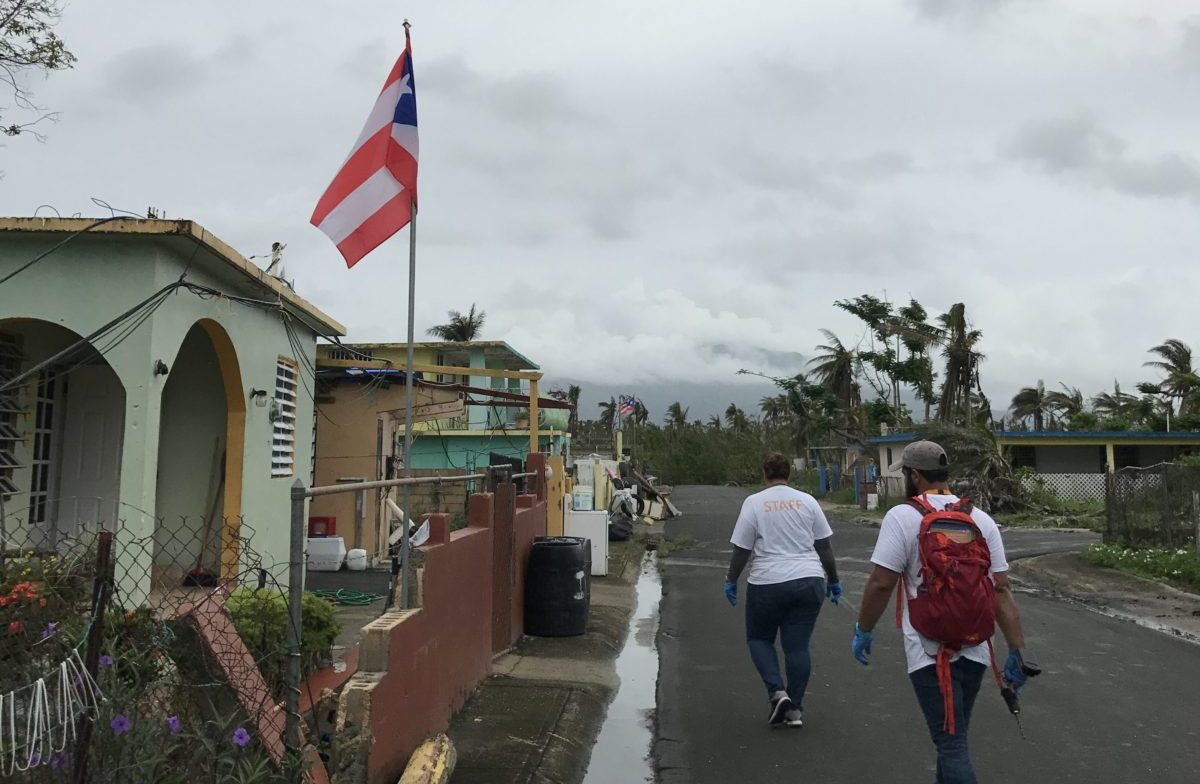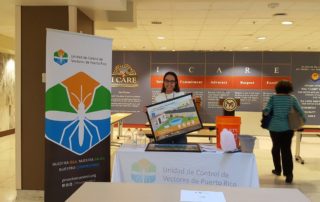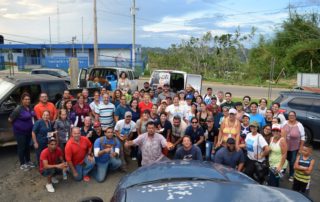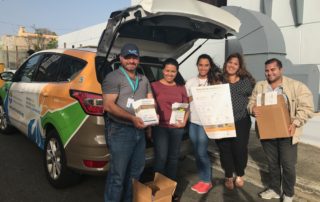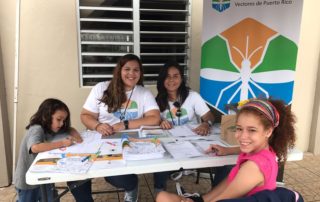After the hit of Hurricane María, the Puerto Rico Vector Control Unit, a program of the Puerto Rico Science, Technology & Research Trust in collaboration and by federal grant from the Centers for Disease Control and Prevention (CDC), has joined the reconstruction process of the island with an educational campaign about the correct management of accumulated water, to reduce mosquito breeding sites in the island’s surroundings.
“Since we have been forced to store water for our basic needs, and the inevitable accumulation of it in debris that are still on the ground, it is essential that we take an active role in the elimination of mosquito breeding sites,” Marianyoly Ortiz, associate director of the Puerto Rico Vector Control Unit.
As part of this campaign, the Puerto Rico Vector Control Unit team has visited communities to provide information and education on the importance of this problem, which has worsened after Hurricane María.
Some of the municipalities impacted by the Puerto Rico Vector Control Unit are: San Juan, Aguadilla, Barranquitas, Ponce, Arecibo, Florida, Comerío, Bayamón and Guayama.
Likewise, the team of the Unit has carried out the elimination of mosquito breeding sites in the communities of Reparto Metropolitano in San Juan, Punta Santiago in Humacao, Barrio Ingenio and Levittown in Toa Baja and communities in Corozal.
The advice provided to the public, focuses on the proper management of water like: keeping containers of stored water covered, removing accumulated water from debris and using larvicides, which kills mosquito larvae, in the accumulated water that is not for human or animal consumption.
The stored water can be used within the first seven days of collection without it becoming a breeding site, since the mosquito cycle is 7-10 days.
Also, personal protection is important, so it is recommended to use repellents with active ingredients approved by the Federal Environmental Protection Agency, wear light colored shirts and pants and place mosquito nets and screens on doors and windows.
“Everyone is aware of the danger posed by the spread of the Aedes aegypti mosquito as it can result in epidemics of Zika, dengue and chikungunya,” she added.
“By taking these simple steps, we look after the welfare of our family and the community in which we live, preventing the mosquito from taking over our waters. We must all apply the #LeySecaAlMosquito to achieve a Puerto Rico free of the Aedes aegypti mosquito,” she added.
Sobre la Unidad de Control de Vectores de P.R.:
La Unidad de Control de Vectores de Puerto Rico es un programa del Fideicomiso para Ciencia, Tecnología e Investigación de Puerto Rico en colaboración con los Centros para el Control y la Prevención de Enfermedades y el Departamento de Salud de Puerto Rico. La Unidad fue establecida para reforzar las capacidades de la Isla para controlar el mosquito Aedes aegypti, vector del dengue, Zika y chikungunya. Su programa de Manejo Integrado de Vectores cuenta con tres iniciativas principales para lograr aspirar a un Puerto Rico libre de enfermedades trasmitidas por mosquitos. Los tres pilares son monitoreo y vigilancia, movilización comunitaria y control de vectores. Mediante la educación y el empoderamiento a los ciudadanos se logrará reducir dramática y sosteniblemente la población de mosquitos en todo Puerto Rico. Para más información: www.prvectorcontrol.org.
Sobre el Fideicomiso para Ciencia, Tecnología e Investigación de Puerto Rico:
El Fideicomiso para Ciencia, Tecnología e Investigación, según descrito en la Ley Pública 214, es una organización sin fines de lucro creada en el 2004 para impulsar la participación y creación de empleos de la Isla en la economía global del conocimiento al promover la inversión y el financiamiento de la investigación y el desarrollo de la ciencia y la tecnología. Al invertir en la investigación y la comercialización de la tecnología, el Fideicomiso sirve de catalizador para la creación de empleos y la retención de los residentes de la Isla altamente cualificados y a menudo bilingües. Es también responsable de la política pública de Puerto Rico para la ciencia, la tecnología, la investigación y el desarrollo. Para más información : www.prsciencetrust.org.
